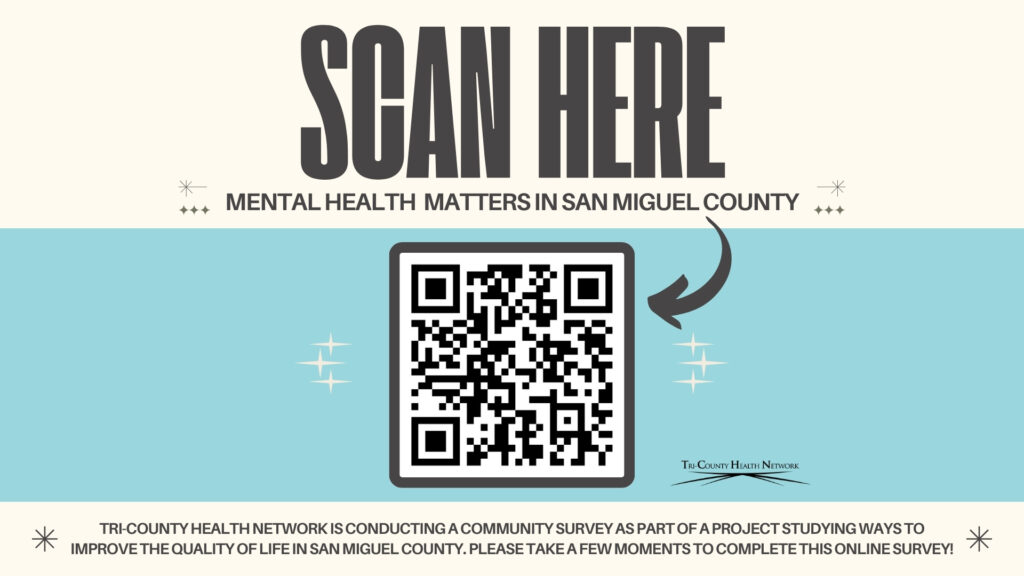
Tri-County Health Network is sponsoring a survey to gauge quality of life, community engagement, and behavioral health needs.
Residents in San Miguel County and the West End of Montrose County have the opportunity to provide valuable input regarding community mental and behavioral health needs in our county. This will help improve the quality of life in the region through identifying gaps in services, which will in turn, assist local and regional providers to direct their programming toward those gaps.
Tri-County Health Network is leading the efforts to collect this essential information on community mental and behavioral health services. Phone surveys with approximately 400 individuals in the area will be conducted by the national research firm PRC of Omaha, Nebraska, throughout January and February. The confidential survey will ask questions about residents’ community connections, quality of life, and health needs related to mental health and alcohol use.
“Past surveys have focused on broader issues in the community. This survey focuses on behavioral health issues, providing us with a baseline and ongoing data,” said Melanie Montoya Wasserman, Co-Executive Director of TCHNetwork. “Our intent is to conduct this type of survey with regularity, which will provide direction for addressing our community’s most pressing needs.”
The households that receive a phone survey will be selected at random, and both the online and phone surveys will take less than 10 minutes to complete. Phone and online surveys will be available in English and Spanish.
The results of the survey will help local organizations understand where the greatest needs exist and identify ways to strengthen the services and community connections that improve quality of life for all residents. This will also aid in seeking funding to address these areas of need.
CLICK THE BUTTON BELOW TO TAKE THE SURVEY!


